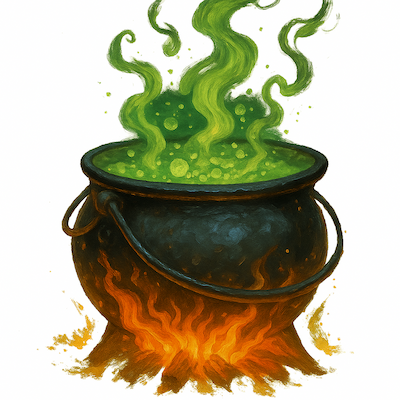
What Does Haberlas, Haylas Mean?
Exploring the Famous Galician Expression About Witches and Folklore
If you’ve ever heard someone say haberlas, haylas, you might have paused and wondered: What does that even mean? This mysterious Spanish expression has deep roots in Galician folklore, often linked to witches, or meigas and the region’s mystical heritage.
In this post, we’ll explain:
– The meaning of haberlas, haylas
– Its origin in Galicia, Spain
– Its connection to meigas and Galician mythology
– How it’s used in Spanish today
🧙♀️ Meaning of Haberlas, Haylas in Spanish
The expression haberlas, haylas roughly means:
They exist, oh they do. (Even if we don’t see them, they’re real.)
It’s used when referring to things people aren’t 100% sure exist, like witches, ghosts, or superstition – but they still sort of believe in.
A common phrase is:
Las meigas no existen… pero haberlas, haylas.
Witches don’t exist… but they do exist.
🔮 Origin: Galicia, Meigas, and Superstition
This phrase comes from Galicia, a region in northwest Spain with a deep tradition of folklore, superstition, and witchcraft. The word meiga refers to a type of Galician witch, usually more complex than the typical evil bruja. Meigas can be healers, protectors or tricksters.
Galicians have long embraced a worldview where myth and daily life intertwine, and haberlas, haylas is one of the most iconic expressions of that mindset.
You may also hear the Galician version: habelas, hainas – same meaning, just in the Galician language.
🧹 How Is Haberlas, haylas Used?
Common Contexts:
“Haberlas, haylas” pops up in moments where the line between fact and folklore blurs. People use it when talking about the supernatural – ghosts, witches, strange happenings – things that can’t be proven but are still felt. It also slips into everyday gossip, like when someone hints at shady behavior or local secrets with a smirk: Dicen que no hay corrupción… pero haberlas, haylas. And sometimes, it’s the go-to phrase when life feels too coincidental, as if invisible forces are at play. Whether spooky, suspicious, or just uncanny, it’s the perfect phrase for things that lurk just out of sight.
Tone:
The tone of haberlas, haylas is a blend of playful mystery and quiet belief. It carries a slightly skeptical but open-minded attitude, like someone who doesn’t quite buy into the supernatural, but also won’t rule it out. There’s a wink behind the words, a knowing smile that says, “I might not believe in witches… but I wouldn’t mess with them either.” It’s this mix of superstition and humor, of doubt and possibility, that makes the phrase so charming and enduring.
🔥 Is It Used Outside of Spain?
In Spain, haberlas, haylas is widely recognized and understood, though it’s most strongly tied to Galicia, where it originates. It’s a phrase you’ll hear in informal conversation—passed along in stories, jokes, or casual remarks, but rarely seen in writing. Its folkloric flavor gives it a distinct regional identity, even as it travels across the country. In Latin America, however, the expression is far less common. It’s not part of the everyday expressions and may be unfamiliar to many, though it can occasionally surface in communities with Galician heritage. Still, it remains a uniquely Spanish phrase, with deep roots in Galicia’s misty myths and oral traditions.
🌒 A Phrase That Blends Myth and Language
Haberlas, haylas is more than a quirky saying. It captures the essence of Galician culture: a world where myth and reality overlap and where belief lingers even without proof.
So next time someone asks if you believe in witches, just say:
No existen… pero haberlas, haylas.